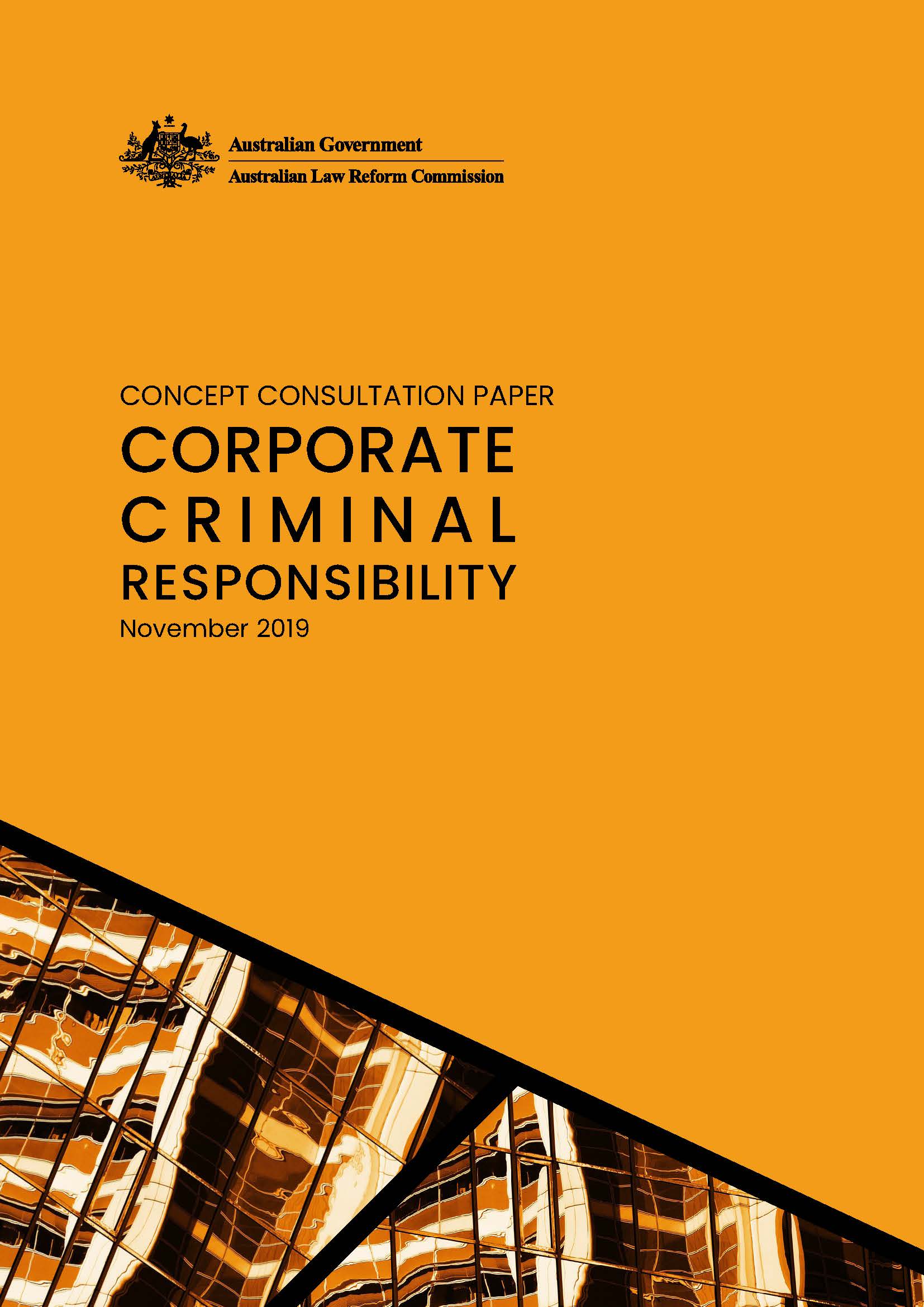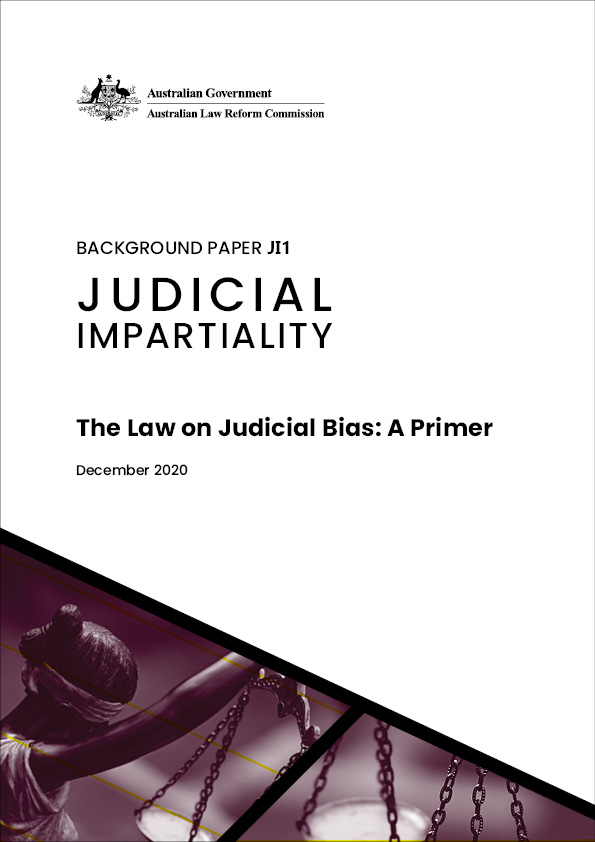30.03.2021
The ALRC has instigated a new approach to consultation documentation to encourage greater engagement with a wider cross-section of academics, the legal profession, and the community. We understand that not everyone has the time or inclination to review a 300 page discussion paper in order to consider and comment on specific law reform proposals. To facilitate valuable submissions to the law reform process we are replacing our lengthy discussion papers in favour of shorter Consultation Papers with fewer than 40 pages.
For those who would like a review of the literature and an in-depth analysis of existing research, the Consultation Paper will be accompanied by a series of Background Papers.
The concept consultation paper
 In 2019, a concept consultation paper was developed utilising content from the review into Australia’s corporate criminal responsibility regime. Feedback and comments were solicited from multiple and diverse stakeholders, with the key aim of producing a straightforward and time-efficient consultative document that promotes submissions from a wide range of contributors.
In 2019, a concept consultation paper was developed utilising content from the review into Australia’s corporate criminal responsibility regime. Feedback and comments were solicited from multiple and diverse stakeholders, with the key aim of producing a straightforward and time-efficient consultative document that promotes submissions from a wide range of contributors.
View the concept consultation paper.
Background papers launched
 The review of Judicial Impartiality introduced the streamlined consultation documentation with the first background paper, The law on judicial bias: A primer (JI1), released in December 2020. Subsequently, two further background papers have been released this month, Recusal and self-disqualification procedures (JI2) and The Federal Judiciary – the Inquiry Context (JI3).
The review of Judicial Impartiality introduced the streamlined consultation documentation with the first background paper, The law on judicial bias: A primer (JI1), released in December 2020. Subsequently, two further background papers have been released this month, Recusal and self-disqualification procedures (JI2) and The Federal Judiciary – the Inquiry Context (JI3).
The collection of background papers, supported by rigorous and principled legal analysis, establish the research and analysis undertaken by the ALRC which will inform the Consultation Paper — resulting in a simplified consultation paper catering for a wide range of submission participants.
Remodelled consultation paper coming soon.
The first real Consultation Paper will be released at the end of April 2021 as part of the Judicial Impartiality Inquiry. The ALRC will be seeking formal submissions in response to the law reform proposals and consultation questions set out in the Consultation Paper.
In accordance with the ALRC law reform process, further consultations will be undertaken in response to the submissions received. The Inquiry recommendations will be formulated to balance the research conducted in conjunction with the submissions and consultations.
